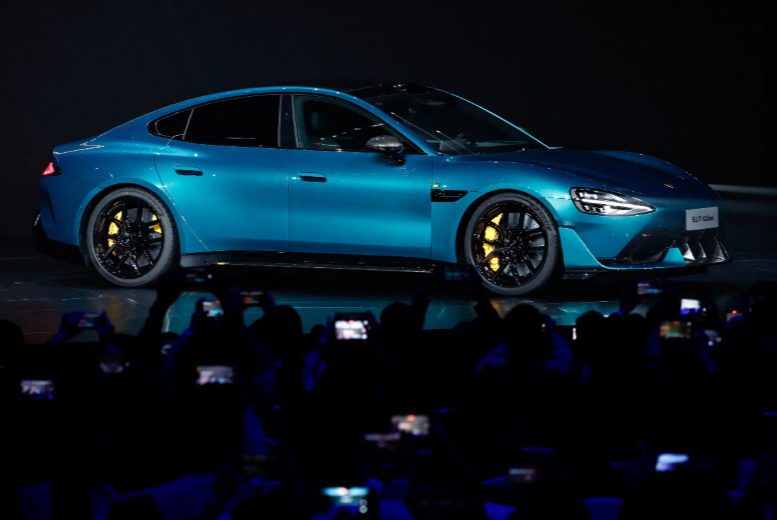

Xiaomi is pulling back nearly 117,000 units of its debut EV, the SU7, after discovering a software flaw in its driver-assistance system that could compromise safety in rare scenarios. The move comes just months after a fatal highway crash involving the sedan intensified scrutiny on the young automaker.

Image Source: Tingshu Wang/File Photov
China’s State Administration for Market Regulation (SAMR) announced the recall, which covers 116,887 SU7 Standard Edition vehicles built between February 6, 2024, and August 30, 2025. At issue is the car’s Level 2 highway pilot function, which regulators say fails to recognise hazards, issue warnings, or react swiftly enough in unusual road conditions. In plain terms, if drivers aren’t alert, the system’s misstep could heighten collision risks.
The Xiaomi SU7 made extensive use of aluminium, with high-strength steel and aluminium alloys accounting for more than 90 per cent of its body structure. This included the armoured safety cage, key suspension components such as the double-wishbone front suspension, as well as sections of the chassis and die-cast structural parts. The model is also equipped with a clamshell-style aluminium hood, designed to improve aerodynamics and reduce drag.
Get your hands on - The World of Aluminium Extrusions – Industry Forecast to 2032
When did this issue gain importance?
Concerns over the driver-assistance system gained urgency after a tragic March 2025 accident in which an SU7 crashed into a highway guardrail at 60 mph and caught fire, killing three people. Investigators confirmed the assisted driving system had been active until one second before the crash, when the driver abruptly took back control. The vehicle had issued obstacle warnings, but too late to prevent disaster.
The case underscores the fine line with Level 2 automation: while the system can steer, accelerate, and brake, it still legally demands a fully attentive human behind the wheel. For now, Xiaomi’s recall serves as a reminder that in “smart driving,” the smartest safeguard is still the driver.
Also Read: Toyota to shut down one of its two EV production plants in US amidst rising tariffs
So, what is the solution?
For owners, though, the fix is simple. Xiaomi will roll out a free over-the-air (OTA) software update, upgrading all affected cars to its HyperOS 1.10.0 system. No dealership visits required. The company’s upcoming YU7 SUV will also receive the updated software, showing how EVs can now get safety fixes as easily as a smartphone download.
The recall is a significant moment for Xiaomi’s fledgling car business. The 116,887 units represent nearly one-third of the 339,421 SU7s sold since the sedan’s launch in March 2024, a model that alone accounts for almost 89 per cent of the company’s EV sales.
Responses








